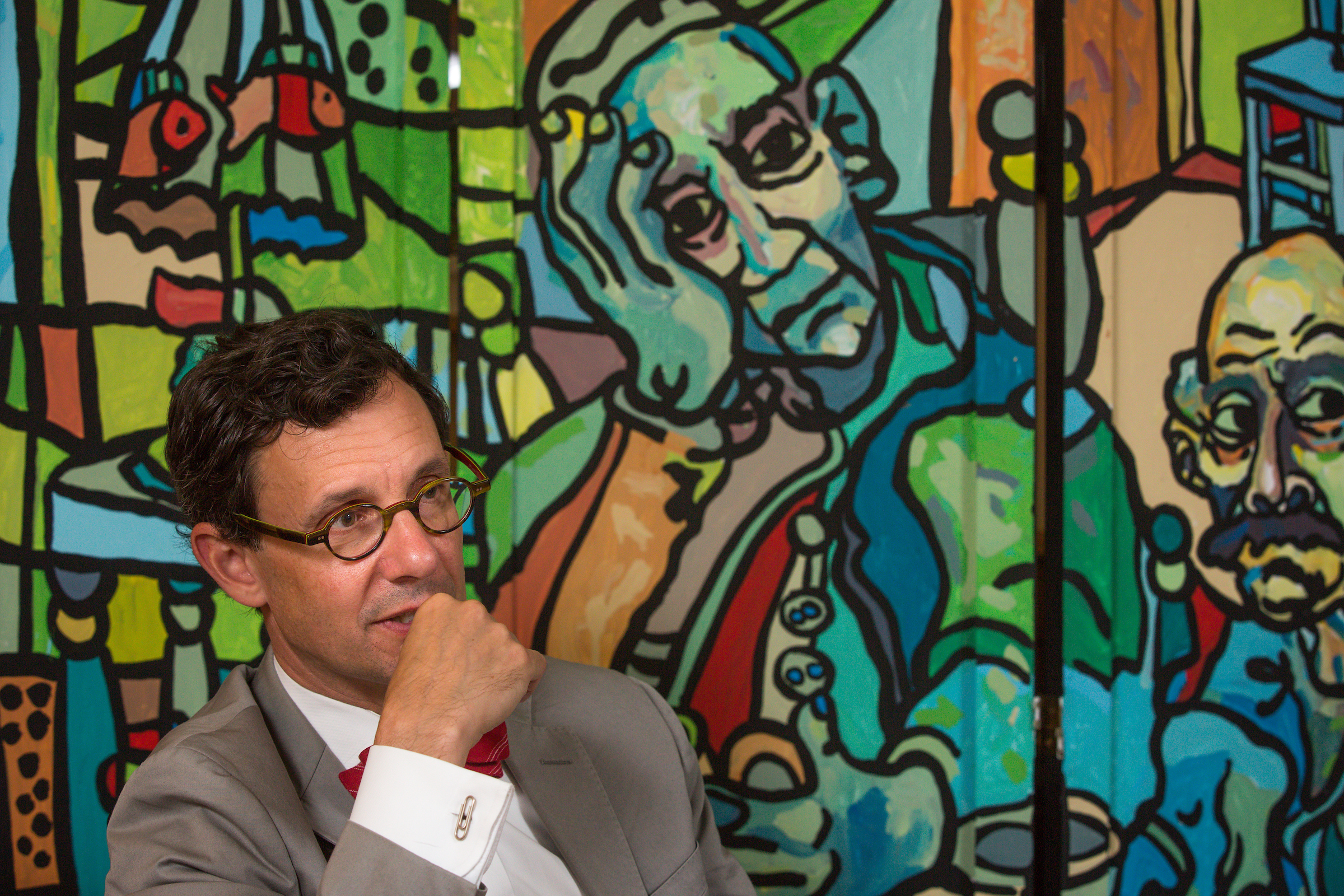For years, Steven J. Tepper has advanced the notion that artists can change the world as profoundly as scientists or engineers.
So when he learned the MacArthur Foundation had plans to award a whopping $100 million grant to help solve “a critical problem affecting people, places or the planet,” he wanted to be sure artists and designers were engaged in a meaningful way — as judges, project team leaders and collaborators. He wrote to colleagues at MacArthur, to deans and researchers across ASU and to arts leaders across the U.S.
Now, Tepper, dean of Arizona State University’s Herberger Institute for Design and Arts, has been appointed to the panel of judges who will decide which organization will win the 100&Change competition. Tepper’s addition underscores the value of his work to make sure artists and designers are viewed as critical partners in a range of fields.
“Artists and designers have a way of asking questions, expanding our imagination and exploring opportunities,” Tepper said recently. “Their ideas and methods provide a powerful lens to address critical issues facing our communities, and they should be fully integrated into public life rather than seen as extra or special or something apart from everyday life.”
Steven J. Tepper, dean of Arizona State University’s Herberger Institute of Design and the Arts. Photos by Charlie Leight/ASU Now
Under his guidance, the concept of art as a change agent has helped trigger more than $1 million in donations to Herberger Institute initiatives this year, and school staffers are working on plans that include an art-and-design project to address sexual violence, a mission to activate hundreds of students every year to work with community partners to improve greater Phoenix and a suite of plans — collectively called “Projecting All Voices” — to get more minorities and first-generation students into arts-and-entertainment careers.
“Projecting All Voices,” which includes scholarships, mentoring, fellowships, internships and guest artist residencies, helps address the frustration that triggered the grassroots social media campaign #OscarsSoWhite, which mocked the lack of diversity in Hollywood, said Jake Pinholster, Herberger Institute associate dean for policy and initiatives. Similar issues of representation, he said, show up across many areas of arts and entertainment, including fine arts, classical music and architecture.
“There's a breath between graduation and first opportunity,” Pinholster said, explaining that in the time it takes to land a decent job, graduates from underrepresented communities often leave the their field to secure a more immediate steady paycheck.
“We need to give them that first opportunity," Pinholster said. He added, “Our goal is to create a pipeline — and an expansive and deep reservoir at the end of that pipeline.”
Pinholster also highlighted a series of other projects that have already begun to reshape greater Phoenix. He mentioned mural projects that grew from “respect and bi-directional communication,” rather than directives from outsiders; a musical concert series that turns empty lots into community gathering spaces; and efforts to plant sunflowers in blighted areas as reminders of hope and sources of bio-fuel.
The work, Pinholster said, reflects the “credibility and excitement” that Tepper generates by helping neighborhoods reshape themselves through art. The approach helps “communities see benefit without negatives of gentrification or imposition,” he said.
Tepper’s involvement in 100&Change means his views on art’s usefulness and utility will expand to an organization that has said it’s seeking to solve “society’s most pressing problems.”
Competition organizers said they will consider proposals from any organization from around the world. The work could address any issue from any field of interest. Hundreds of submissions are expected and the field of judges, which now includes Tepper, will start narrowing the field this fall.
Herberger Institute professor Liz Lerman, a choreographer and author, has a unique perspective. She won one of the MacArthur Foundation’s “genius grants” in 2002, and Tepper recruited her to ASU this year. She believes in his vision.
“Steven has a deep awareness of the value of art making and art makers to problem-solve,” Lerman said, adding that artists “help us see ourselves in new ways.”
Pinholster raised a similar point, using sustainability as an example. “We have the data and technology” to solve the problems, but the issues persist, he said.
Artists, Pinholster said, can “change the cultural narrative, get people to believe in a different story and change collective decision making.”
Art, he added, can get people to “think more about 10,000 years, not just five years.”
Tepper is optimistic about the competition’s potential to create “human-centered solutions.” Contributors from his field, he said, could “perhaps make some analogical connection that moves us past whatever our existing approaches have been. And that’s the way artists and designers think.”
He acknowledges that the MacArthur Foundation is taking a gamble, but he said it’s worth it.
“It’s riskier to give out a single, large grant of this size,” he said, “but imagine if we’re truly able to see a transformative outcome.”
More Arts, humanities and education

'Almost unreal': Gift of guitar collection opens new worlds for ASU music students
When award-winning Italian guitarist Davide Picci arrived at Arizona State University as a doctoral student in the Fulbright Program, he was looking for the right guitar to prepare for an…

From summer camp to afterschool sports, learning happens everywhere — and ASU is ready to help
Millions of young people turn to youth-serving organizations to enrich their lives through after-school programs, summer learning, youth sports and other evidence-based activities that support their…

ASU Regents Professor Steve Graham elected to National Academy of Education
Steve Graham, Regents and Warner Professor in the Mary Lou Fulton College of Teaching and Learning Innovation, has been elected to membership in the National Academy of Education, one of the highest…

